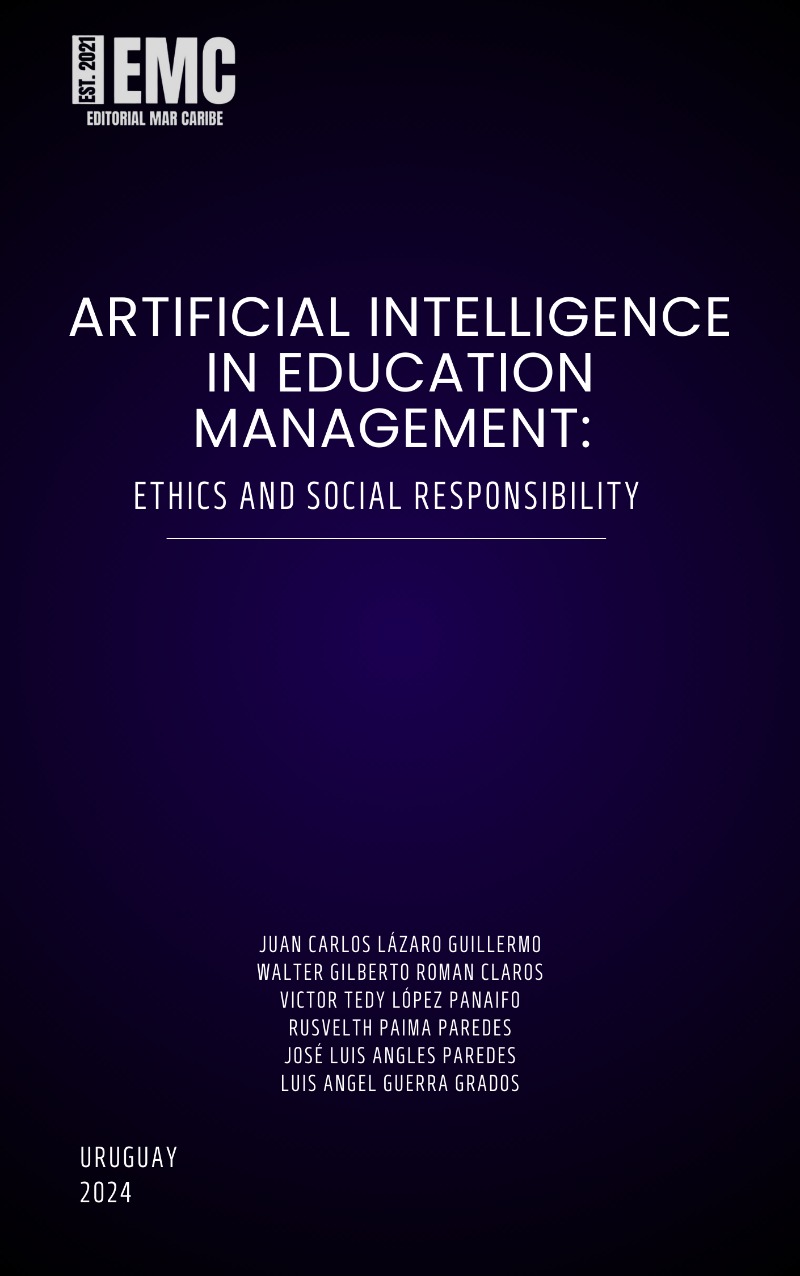
Artificial intelligence in education management: Ethics and social responsibility
Roman Claros, Walter Gilberto
López Panaifo, Victor Tedy
Paima Paredes, Rusvelth
Angles Paredes, José Luis
Guerra Grados, Luis Angel
Editorial:Editorial Mar Caribe
Materia:Educación
Clasificación:Cuerpo docente / de educadores
Público objetivo:Profesional / académico
Publicado:2024-12-13
Número de edición:1
Número de páginas:0
Tamaño:5Mb
Precio:$450
Soporte:Digital
Formato:Pdf (.pdf)
Idioma:Inglés
Libros relacionados
Sentidos y sinsentidos del acompañamiento educativo - Larrosa, Jorge; Pérez, Gabriela; Meerovich, Matias; Poggio, Soledad; Dabezies, Lucía; Vulcano, Sergio
Una perspectiva didáctica de la evaluación formativa - Díaz Barriga, Ángel
Educar y cuidar - León, Verónica de; Aniano, Valentina; Jauri Sienra, Valentina; Alliaume, Javier
Una perspectiva didáctica de la evaluación formativa - Díaz Barriga, Ángel
Reseña
Ethics and social responsibility in scientific research are fundamental aspects that ensure the integrity and development of knowledge. As science and technology advance, so do the ethical considerations inherent in conducting research. It is vitally important that researchers not only adhere to ethical principles in their work, but also understand the societal implications of their findings.
Scientific research, whether in the medical, social, technological, or environmental fields, can have a significant impact on human life and society as a whole. It is therefore essential that researchers take a responsible approach, concerned not only with acquiring new knowledge but also with the well-being of participants, communities and the environment. Research ethics encompasses many issues, including obtaining informed consent, protecting privacy and confidentiality, and minimizing harm.
In addition, social responsibility means that the results of scientific research must be disseminated and applied in ways that benefit society by promoting equitable and accessible progress for all. In this book, four chapters are addressed, emphasizing the importance of ethics in scientific research and its relationship with artificial intelligence and social responsibility.
In chapter one, we delve into the ethics of research for the development of knowledge and the integrity of science, emphasizing that research is carried out in a fair and responsible manner. Therefore, a lack of ethics can have devastating consequences, such as the spread of misinformation and a loss of trust in the scientific community. Ethics includes not only the treatment of research participants but also the transparency of methods, data analysis and publication of results.
Chapter two addresses the growing dependence on technology in education and how AI solutions are implemented in the teaching-learning binomial, urging educational institutions to become passive recipients of technology, ignoring important skills that cannot be replaced by digital tools. This can include communication skills, critical thinking, and creative problem-solving. We highlight that not all students have the same opportunities to interact with advanced AI tools. Therefore, the lack of adequate infrastructure can lead to growing educational inequality, so only those with sufficient resources can benefit from advances in artificial intelligence.
In chapter three, we delve into interactive dialogic learning from the conceptual pedagogical approach that is based on interaction and dialogue between participants as fundamental methods for the acquisition of knowledge. To deeply understand this approach, it is essential to explore the theories of learning that underpin it, the basic principles that govern it, and how they compare to other learning methods.
Finally, in chapter four we inquire about scientific research, especially in the area of science and technology for development, because it is not only to promote the advancement of knowledge, but also to invest significantly in research and development (R+D) for greater growth and competitiveness in management and innovation in education.
Through this research, we want to open the debate on research ethics with appropriate regulation, as well as active engagement by researchers and technology developers to ensure that their work contributes positively to society. Therefore, education in research ethics is vital for the academic preparation of students in all cycles of education, with inclusivity and equity in teaching and learning within learning spaces.




